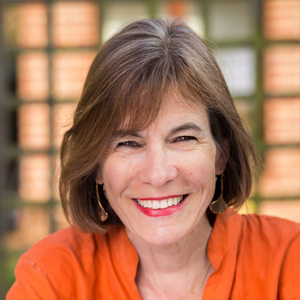In celebration of International Women’s Day on March 8, Equimundo talked to Nikki van der Gaag about the importance of bringing men on board with feminism.
Nikki van der Gaag is a Senior Fellow at Equimundo. She is an independent consultant who works on gender in development, with a particular focus on girls and on men and gender equality. She co-authored the first ever State of the World’s Fathers report in 2015. Her latest book is Feminism and Men (Zed Press, 2014). She has also authored The No-Nonsense Guide to Women’s Rights (New Internationalist/Verso, 2008), and six State of the World’s Girls reports for Plan International, including one on boys and gender equality. She is a member of the International Advisory Board for Young Lives, an Oxford University study on child poverty; director of Just Change UK; and an advisory trustee of the Great Men Initiative and New Internationalist magazine.
What do you want everyone to know on International Women’s Day?
That even if sometimes it feels like two steps forward and one step back, the tide is beginning to turn. Women and men need to stand alongside each other and celebrate the many positive changes that have been achieved – at the same time as being realistic about what still needs to be done.
What makes you passionate, personally, about reaching gender equality, and what is your professional “Pledge for Parity”?
I have been a feminist since my late teens, and have worked on gender and women’s rights for more than 25 years. I first heard about Equimundo in the early 2000s when working on men and HIV at the Panos Institute. It started me thinking about the role men might and should have in promoting gender equality: could we as feminists go on seeing men as the problem rather than as part of the solution? Then in my travels to write about and work with women and girls, I began to notice the men, and in particular the boys, who wanted to know what was going on and why they were not involved. I began to talk to them, and in 2010, I proposed to Plan International that I write a State of the World’s Girls report on boys and gender equality. The Advisory Editorial Board had representatives from Equimundo, White Ribbon, and similar organizations. And I have been writing about men alongside my work on women and girls ever since. My pledge? To continue to work for a broader and less binary definition of gender equality so that we can truly move forward together to change the world.
What is the biggest challenge we face in reaching gender equality, and what are some of the key strategies to achieve this goal?
I think we can’t separate the work on men and gender equality and gender justice from the wider context of development. We need to continue to listen to what women and men at the local level have to say, and work with them in small ways as well as big ones.
It remains a big challenge to convince more than a relatively small number of men about the need to become a part of the movement for gender equality. So we also need to work with men in powerful positions, to reinforce the feminist idea that the personal is political. The influence of fundamentalist religions on gender is another growing problem that also needs to be tackled, as is the continuing epidemic of violence against women and girls.
Tell us a little bit about your role as a Equimundo Senior Fellow.
This is still very new for me, and in many ways is simply an extension of what I have been doing for a number of years: promoting the ideas and work of Equimundo, Sonke Gender Justice, and a range of other key organizations working on men and gender equality in my writing, in talks, and at workshops.
How can working with men and boys help to celebrate and advance the social, economic, cultural, and political achievement of women?
While the work that women have done in the past decades needs to continue, and spaces and resources reserved for this work, I am convinced that we need to engage men if we want to achieve a fairer world.
